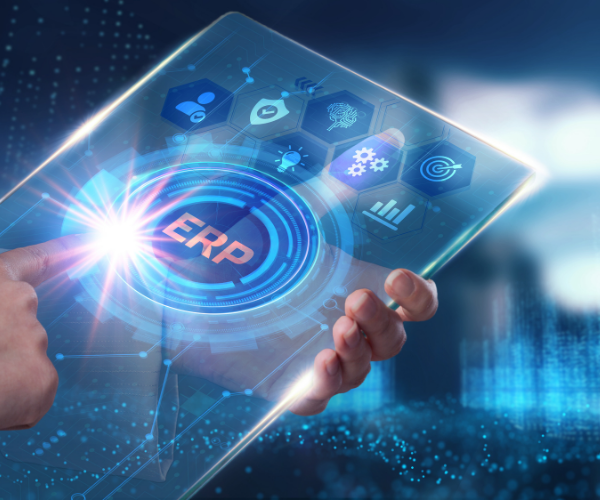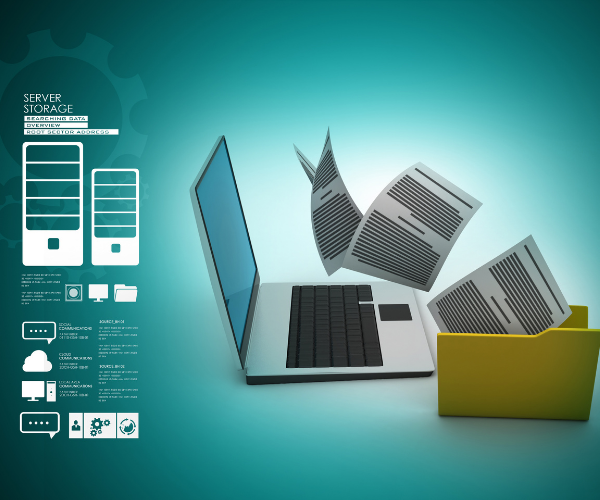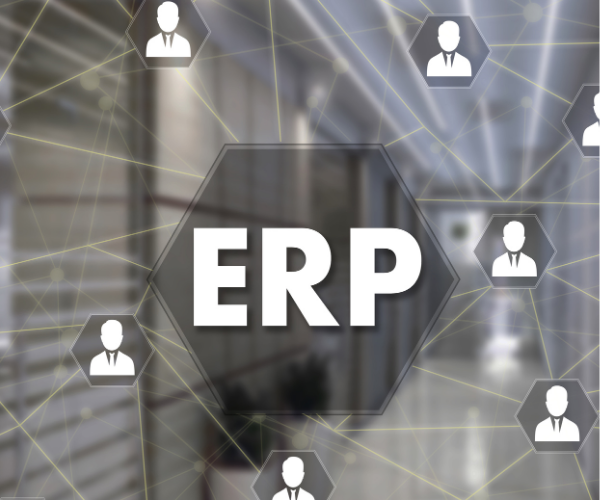THINK ERP – Enabling TRUE Compliances for your Business Excellence
THINK ERP – QMS.9000
In today’s competitive business environment, organizations require a solution that not only streamlines operations but also ensures compliance with international quality standards. THINK ERP by QMS.9000 is a next-generation enterprise resource planning system designed to bring efficiency, transparency, and growth to businesses of all sizes. Developed under the trusted framework of QMS.9000, it combines the strength of proven quality management practices with the flexibility of modern ERP technology.

At its core, THINK ERP integrates all critical business functions—finance, human resources, supply chain, sales, procurement, inventory, and production—into a unified digital platform. By eliminating silos and manual processes, the system ensures that decision-makers have real-time visibility and accurate insights into every aspect of operations. This leads to faster response times, reduced costs, and better overall performance.

One of the defining features of THINK ERP is its foundation in quality management principles. Unlike generic ERP systems, THINK ERP is built around the QMS.9000 philosophy, which emphasizes consistency, compliance, and continuous improvement. This makes it particularly valuable for organizations operating in regulated industries where traceability, audit-readiness, and standardization are critical.

THINK ERP is also designed with the user experience in mind. Its intuitive dashboards, customizable workflows, and advanced reporting tools make it easy for teams to adapt and adopt the system quickly. From small enterprises to large corporations, the platform scales seamlessly to support both current and future needs.
Some of the key benefits businesses experience with THINK ERP include:
-
Enhanced Efficiency: Automating routine processes to save time and reduce errors.
-
Improved Decision-Making: Leveraging real-time analytics and data-driven insights.
-
Stronger Compliance: Ensuring adherence to QMS.9000 and other global standards.
-
Cost Reduction: Minimizing waste, redundancies, and manual interventions.
-
Sustainable Growth: Supporting long-term business expansion with a scalable structure.


Module 1: Planning & Organization
Every successful ERP journey begins with careful planning and strong organization. This first stage lays the foundation for everything that follows, making it one of the most critical parts of ERP implementation. Planning and organization define how well the system will align with your company’s objectives, how efficiently resources will be used, and how smoothly the transition will take place. Without this step, ERP projects can easily face delays, cost overruns, or fail to deliver their intended value.
The planning phase starts by identifying business goals and key processes that the ERP system should support. Companies need to ask important questions: What challenges are we trying to solve with ERP? Which departments will benefit most? How can we make workflows more efficient? Once these goals are clear, a structured plan can be created that maps out the entire implementation journey, step by step. This ensures that the ERP project is not just a technology upgrade but a true business transformation.
Organization plays an equally vital role. ERP implementation involves multiple teams — from management and IT specialists to finance, HR, and operations staff. Without clear roles and responsibilities, projects can easily lose direction. Strong organization ensures accountability, smooth communication, and efficient use of resources. It also helps anticipate risks in advance and prepare backup strategies that keep the project on track.
Unfortunately, many companies underestimate this stage. They rush into ERP selection or installation without a clear plan, which often leads to confusion, budget problems, and resistance from employees. Skipping or rushing planning and organization can turn a powerful ERP system into a costly failure. That is why expert guidance is essential.
At QMS.9000, we specialize in helping organizations design structured ERP roadmaps that focus on both immediate needs and long-term goals. Our team works closely with management and staff to define requirements, set realistic milestones, and establish the right organizational structure to support the ERP journey. With decades of experience in ERP management across the region, we bring proven strategies that minimize risks and maximize success.
Planning and organization are not just about preparation; they are about creating a vision for how ERP will transform the way your business works. With QMS.9000 by your side, you can be confident that your ERP journey will begin with clarity, confidence, and a clear direction.


Module 2: System Selection
Once planning is complete, the next crucial step is system selection. Choosing the right ERP system is often described as the “make or break” point of implementation. The wrong system can lead to high costs, employee frustration, and years of inefficiency, while the right system can completely transform business performance and growth.
System selection starts by evaluating the company’s needs in detail. Every industry, from manufacturing to healthcare, has unique requirements. A retail chain might prioritize inventory control and customer management, while a service-based business may require stronger project tracking and HR modules. Understanding these needs helps narrow down ERP vendors and ensures the chosen solution directly supports business operations.
Beyond functionality, companies must also consider scalability, cost, ease of integration, and long-term vendor support. A system that works for today may not be sufficient in five years as the business grows. This is why selection is not just about features but about finding a platform that can evolve with the organization.
The challenge is that ERP selection is often overwhelming. There are dozens of software providers, each with promises and marketing claims. Without proper expertise, organizations may fall into the trap of choosing based on price alone or selecting a system that looks good in demos but fails to deliver in practice.
This is where QMS.9000 plays a vital role. With strong expertise in ERP management across the region, our team has deep knowledge of various ERP solutions and their strengths and weaknesses. We conduct needs assessments, evaluate vendors, and guide organizations in selecting the ERP system that truly aligns with their industry and future vision. By using proven frameworks, we ensure businesses invest in a solution that offers both immediate benefits and long-term value.
System selection is more than picking software — it is choosing a partner that will support your business operations for years to come. Inclusive career advancement for immigrant employee retention With QMS.9000, you gain the confidence that your ERP investment is not only right for today but built to sustain growth well into the future.
QMS.9000 can help you select the perfect ERP system tailored to your business success.

Module 3: Installation
Installation is the stage where ERP comes to life. After weeks or even months of planning and system selection, this is the point where the software is deployed, configured, and integrated into your organization’s existing infrastructure. Done correctly, installation ensures a stable foundation for every department that will use ERP, but when rushed or poorly managed, it can create long-term performance issues.
The installation process usually begins with preparing the technical environment. This includes setting up servers, networks, and storage systems capable of handling ERP operations. For cloud-based ERP, it means configuring secure access, user permissions, and ensuring reliable internet connectivity. For on-premises ERP, it involves hardware setup and database installation. Each step is critical for ensuring smooth operation once the system is live.
Another essential part of installation is integration. ERP rarely works in isolation — it must communicate with existing tools such as payroll systems, customer management software, or supply chain platforms. Proper configuration ensures that information flows seamlessly between these systems, eliminating data silos and duplication.
One of the biggest challenges organizations face at this stage is underestimating the technical complexity. Some assume installation is as simple as running software on a computer, but in reality, it requires careful configuration of hundreds of parameters, user access levels, and business rules. If not done properly, it can result in downtime, errors, or security vulnerabilities.
At QMS.9000, we bring extensive regional expertise in ERP installation and setup. Our team ensures that the environment is secure, optimized, and aligned with your organizational requirements. We specialize in minimizing downtime during installation, so your business continues to run smoothly while ERP is being set up. With our proven methods, you gain not only a working system but also the confidence that it is configured for long-term stability and efficiency.
Installation is the moment where planning becomes reality. It is about building the backbone of your ERP journey in a way that supports growth, scalability, and business continuity. With QMS.9000 by your side, your ERP installation will be flawless and future-ready.


Module 4: Data Migration
Data is the lifeblood of any organization, and during ERP implementation, data migration is one of the most delicate and crucial stages. Migration involves transferring information from old systems, spreadsheets, or databases into the new ERP environment. If done carefully, it allows a smooth transition where employees continue working without losing vital records. But if done poorly, it can lead to errors, missing information, and even compliance risks.
Data migration begins with assessment. Not all legacy data should be moved — outdated or duplicate records can harm efficiency in the new system. Businesses need to decide which data to keep, which to clean, and which to retire. This process ensures the ERP system starts with accurate, relevant, and high-quality information.
Once the data scope is defined, the transfer process begins. This involves mapping old data structures into the new ERP database, converting formats, and ensuring consistency. For example, customer records, supplier details, and financial history must be migrated accurately to maintain business continuity. Testing is often conducted to confirm that the data appears correctly in the new system before final migration.
The biggest challenge with data migration is balancing accuracy with speed. Companies often operate under pressure to switch quickly, but rushing risks corrupted or incomplete records. Errors at this stage can cause serious disruptions after go-live, such as missing invoices, broken inventory counts, or compliance issues in reporting.
QMS.9000 understands the critical importance of data migration. Our team follows proven methodologies that emphasize data cleansing, accuracy checks, and security throughout the process. We ensure that sensitive information, such as financial records or HR data, is handled with the highest standards of confidentiality and integrity. With our expertise, your business can move into ERP with complete confidence that no valuable information will be lost.
Data migration is more than just transferring files; it is about building a strong, accurate, and reliable data foundation for the future. With QMS.9000, you can trust that your ERP system will start with the clean, organized, and secure data it needs to drive long-term success.


Module 5: Training
A powerful ERP system is only as effective as the people who use it. That is why training is a cornerstone of successful ERP implementation. Even the most advanced ERP solution can fail to deliver results if employees do not understand how to use it properly. Training ensures that your workforce feels confident, empowered, and capable of leveraging ERP tools to their full potential.
The training process typically begins with role-based learning. Different departments use ERP in different ways — finance teams need to master accounting and reporting modules, while operations teams focus on supply chain and inventory features. By tailoring training to roles, employees learn the exact skills they need without being overwhelmed by unnecessary information.
Another key part of training is change management. ERP often introduces new ways of working, and employees may resist change if they feel uncertain or excluded. Training addresses these concerns by showing staff how ERP simplifies their daily tasks, improves accuracy, and reduces manual effort. This helps build trust and encourages widespread adoption across the organization.
Challenges arise when organizations treat training as optional or rely only on short sessions. Without comprehensive training, employees may revert to old practices, undermining the entire ERP investment. Mistakes made by untrained staff can also lead to costly errors, such as incorrect data entry or missed deadlines.
QMS.9000 recognizes the importance of effective ERP training. Our programs are designed to be practical, hands-on, and easy to understand. We provide training tailored to each department and level of expertise, ensuring that everyone — from top management to frontline employees — is equipped to use the system confidently. By combining technical knowledge with real-world examples, our training helps staff transition smoothly into the ERP environment.
Ultimately, training is about empowering people to embrace new tools and processes. With strong training, ERP becomes more than software — it becomes a driver of productivity, collaboration, and growth. Getting 50 Free Spins At Jackpot Charm Casino No Deposit Required With QMS.9000, your workforce gains the skills and confidence needed to unlock the full potential of ERP.


Module 6: Testing & Validation
Before an ERP system can go live, it must undergo thorough testing and validation. This stage is essential to ensure that every module, process, and integration works as intended. Without rigorous testing, businesses risk encountering major disruptions after launch, which can lead to financial losses, frustrated employees, and even reputational damage.
Testing begins with functional checks. Each ERP feature is tested to confirm that it performs as expected. For example, does the financial module generate accurate reports? Does the inventory system update in real time when sales are processed? Are HR records stored securely and accessible only to authorized users? These checks guarantee that the ERP aligns with the business requirements defined during planning.
Integration testing is another critical step. ERP systems rarely operate alone; they interact with payroll software, supplier databases, or customer portals. Testing ensures data flows smoothly between all connected systems, avoiding errors or duplication. This is especially important for businesses with complex supply chains or multi-branch operations.
Validation goes beyond functionality. It includes performance testing to ensure the ERP can handle large volumes of data and transactions without slowing down. Security testing also plays a vital role, protecting sensitive information against potential threats or unauthorized access. By addressing these issues before go-live, businesses save time, money, and stress.
Unfortunately, many organizations underestimate testing. They may skip steps to save time, only to face serious issues later. A failed payroll run, inaccurate invoices, or missing compliance reports can be extremely costly. This is why testing and validation should never be treated as optional.
At QMS.9000, we bring decades of ERP expertise to ensure no detail is overlooked. Our experts perform rigorous testing across all modules, from accounting to operations, identifying and fixing issues before launch. Boylesports Bet £10 Get £50 With structured validation processes, we confirm that your ERP system is not just functional but fully reliable, secure, and compliant with industry standards.
Testing and validation are about building confidence. When your ERP system has been thoroughly verified, you can move into the go-live phase with peace of mind, knowing that it will deliver accurate results from day one. With QMS.9000, your ERP journey is safeguarded at every step.
👉 QMS.9000 can validate and guarantee ERP performance for your business.

Module 7: Go Live
The go-live stage is the most anticipated moment of ERP implementation. After months of planning, selection, installation, migration, training, and testing, this is when the system officially goes into operation. It marks a new era of digital efficiency, where the organization begins to rely fully on ERP to manage its daily processes.
Go-live is more than just flipping a switch. It requires careful coordination to ensure that employees, systems, and data are all ready to work seamlessly on day one. Typically, businesses choose between a “big bang” approach, where the entire ERP goes live at once, or a phased approach, where modules are activated gradually. Both methods have advantages, but both require strong planning and oversight.
A successful go-live ensures minimal disruption to daily operations. Customers should still receive their orders, payroll must run smoothly, and financial transactions must remain accurate. Frequently Asked Questions To achieve this, businesses often run the old and new systems in parallel for a short time, comparing outputs to catch any issues early.
The challenges of go-live usually involve human factors as much as technology. Employees may feel nervous about using the new system, or some may resist the change. Without proper support, small issues can quickly grow into frustrations that slow down adoption. That’s why ongoing communication, user support, and troubleshooting are vital during the first few weeks after go-live.
QMS.9000 has extensive experience in managing ERP go-live events across multiple industries in the region. Our approach ensures that your organization is fully prepared, with backup plans in place to minimize risks. We provide on-site and remote support during the transition, addressing issues in real time and ensuring your business experiences as little downtime as possible.
Go-live is a milestone, but it’s also the beginning of a new journey. With the right support, your ERP system will immediately start delivering value, from streamlined processes to faster decision-making. With QMS.9000 by your side, you can be confident that your ERP launch will be smooth, successful, and future-ready.


Module 8: Ongoing Improvements & Feedback
ERP is not a one-time project — it is a continuous journey of improvement. Once the system is live, businesses must monitor performance, gather user feedback, and make adjustments to keep the ERP aligned with evolving goals and market changes. This stage, often overlooked, is critical for ensuring long-term success.
Ongoing improvements involve analyzing system performance over time. Are processes faster than before? Are employees using the system efficiently? Are there areas where bottlenecks remain? By reviewing these questions regularly, organizations can fine-tune ERP to deliver maximum value.
Feedback from employees plays an equally important role. The people using the system daily often identify gaps or opportunities for improvement that management may miss. By encouraging open communication, businesses can uncover issues early and apply updates or training to resolve them. This not only improves system performance but also builds employee confidence and trust in ERP.
The business environment is constantly changing. New regulations, customer expectations, and market shifts demand that ERP systems stay flexible and updated. Without continuous improvements, a once-modern ERP can quickly become outdated, forcing organizations back into manual processes or costly workarounds.
QMS.9000 specializes in providing ongoing ERP support and optimization. Our experts monitor system usage, identify improvement opportunities, and help businesses implement updates, new modules, or training refreshers. By staying involved after go-live, we ensure your ERP system remains an asset rather than a burden.
This stage is also about scalability. As businesses grow, their ERP requirements expand. Whether it’s adding new branches, integrating e-commerce platforms, or enhancing analytics, ongoing improvements ensure the ERP system scales with the organization’s ambitions. With QMS.9000’s strong regional expertise, you gain a long-term partner dedicated to keeping your ERP future-ready.
In short, ERP success is not about going live — it is about staying relevant and effective year after year. Ongoing improvements and continuous feedback transform ERP into a living system that evolves with your business. With QMS.9000, you can be confident that your ERP investment will continue to deliver results long into the future.
👉 QMS.9000 can provide ongoing ERP optimization and support.

